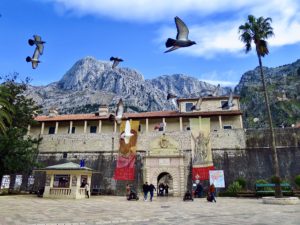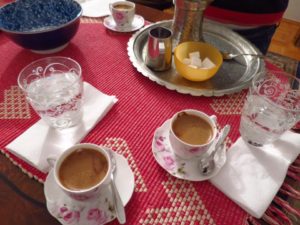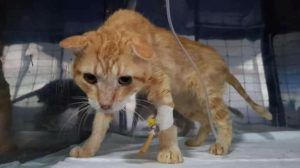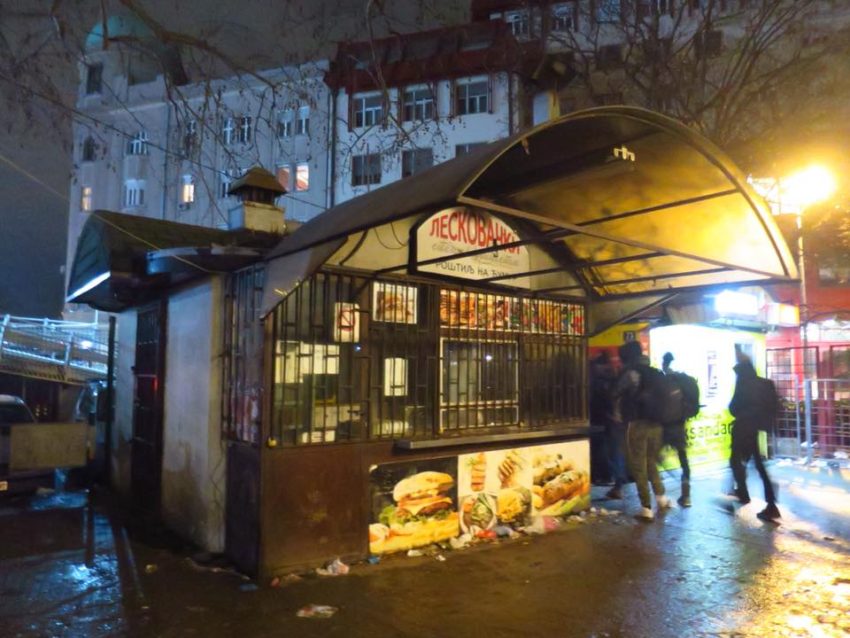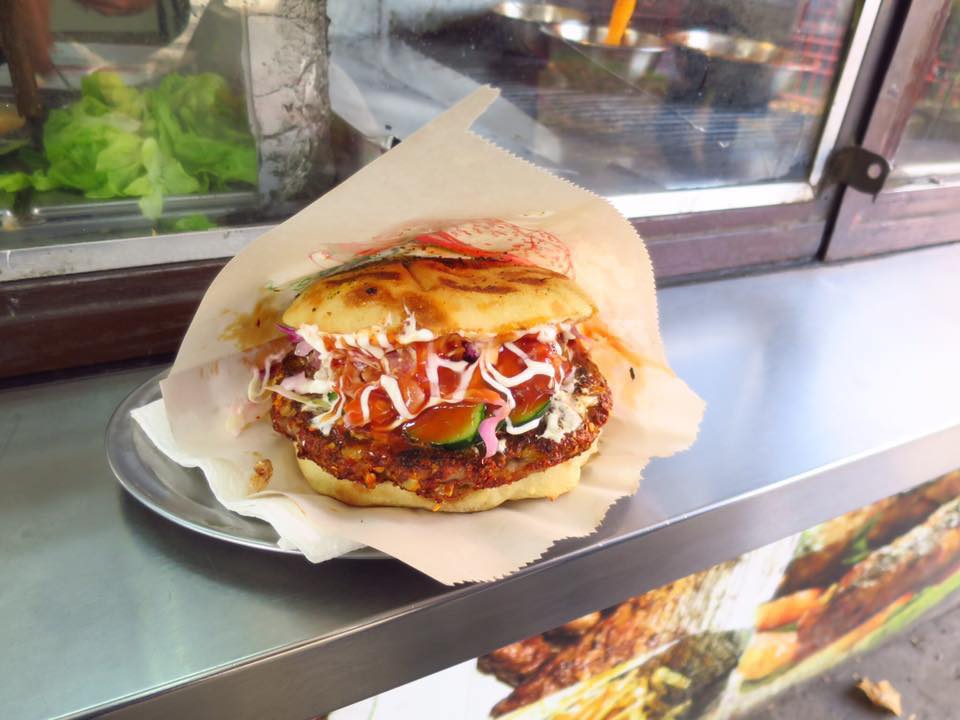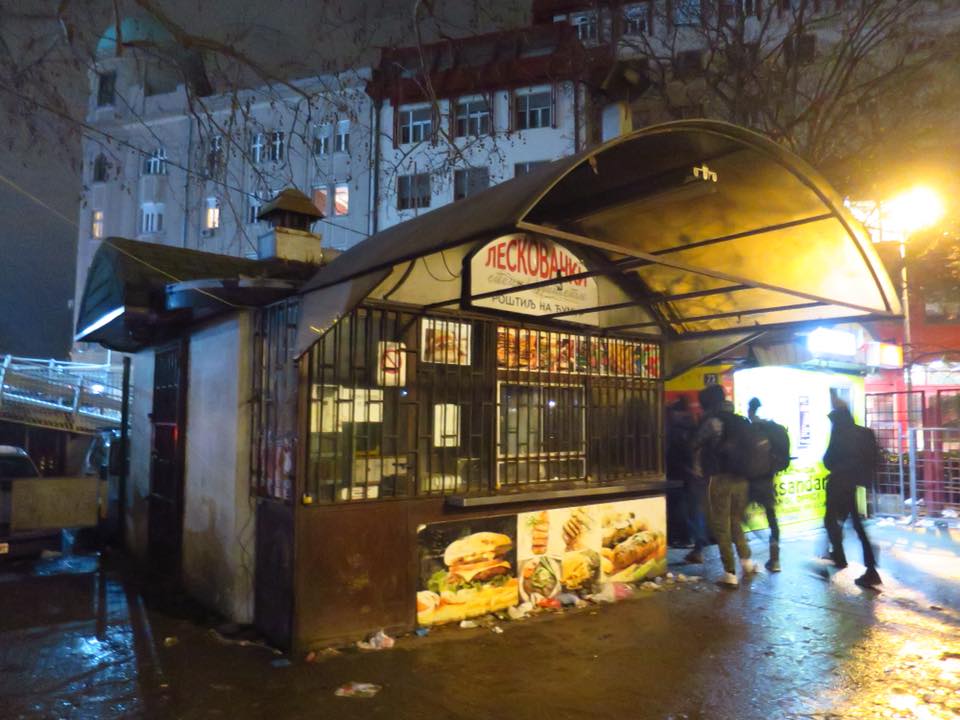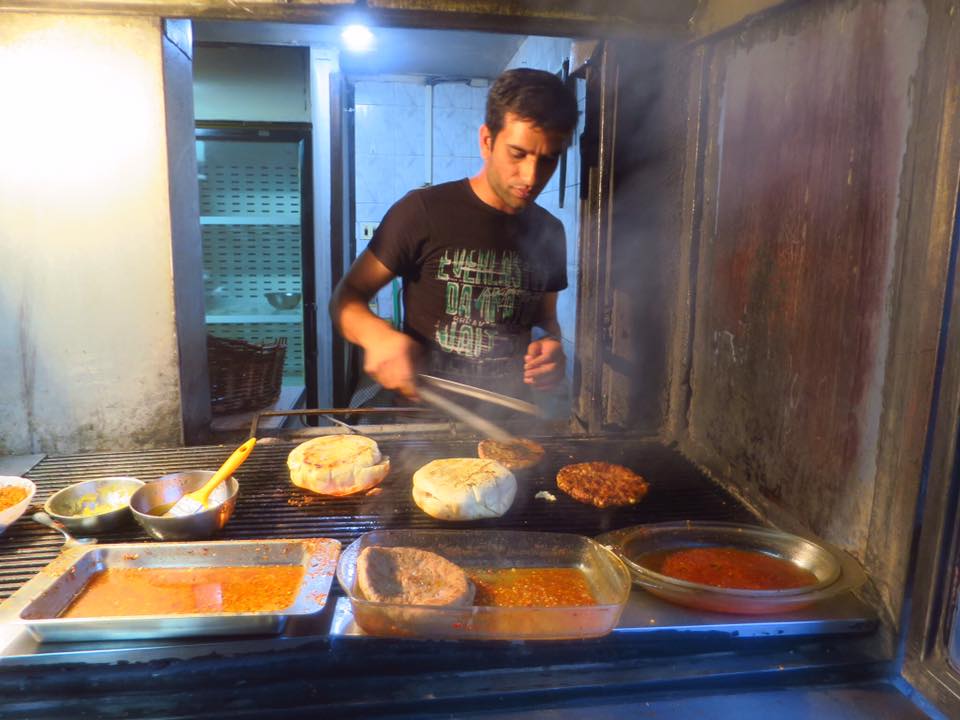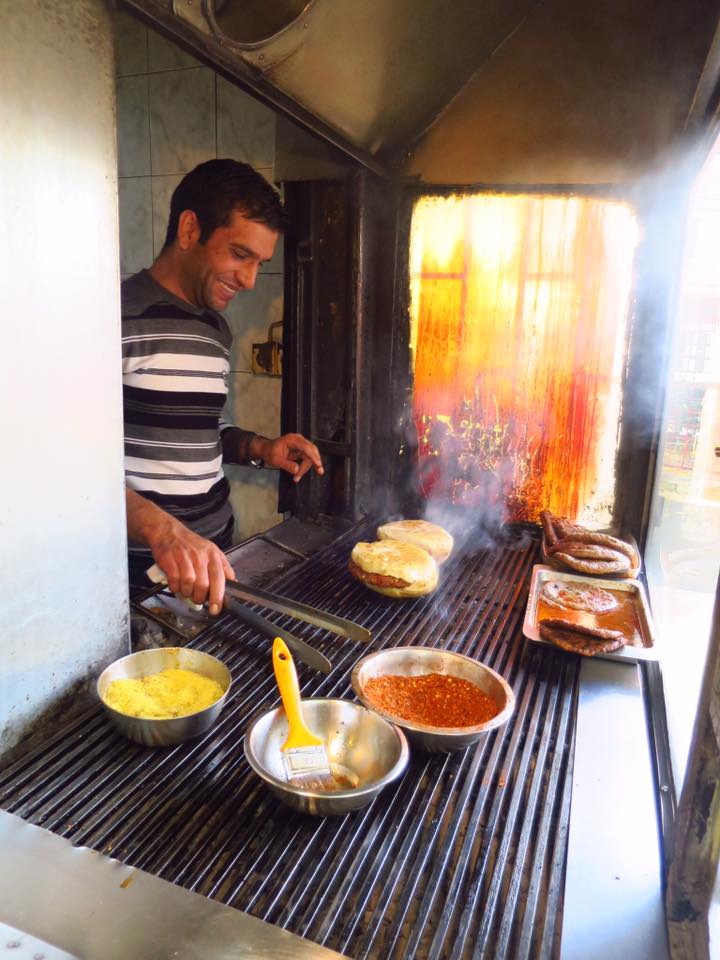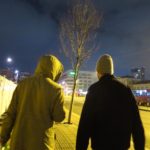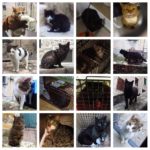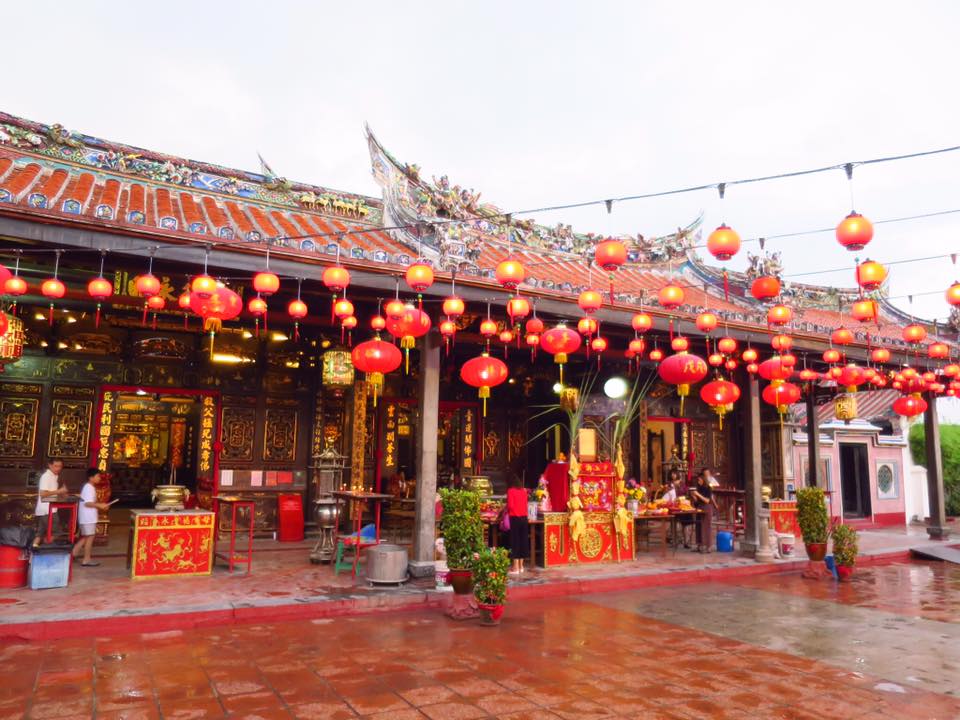Kenric and I made our way to the park where we first met Khaleel two years ago. He was a refugee from Pakistan who was working at a Pljeskavica burger stall. At that time, he had been in Belgrade for two years. He was very grateful for his boss and for his job. Khaleel was personable, and well liked by his coworkers and the other refugees who patiently queued for his burgers and hung around to eat afterwards. There were locals buying from him too. His stall was much busier than the next stall. I invite you to read my 2017 posts about Khaleel (here and here) to see why he is so special to us.
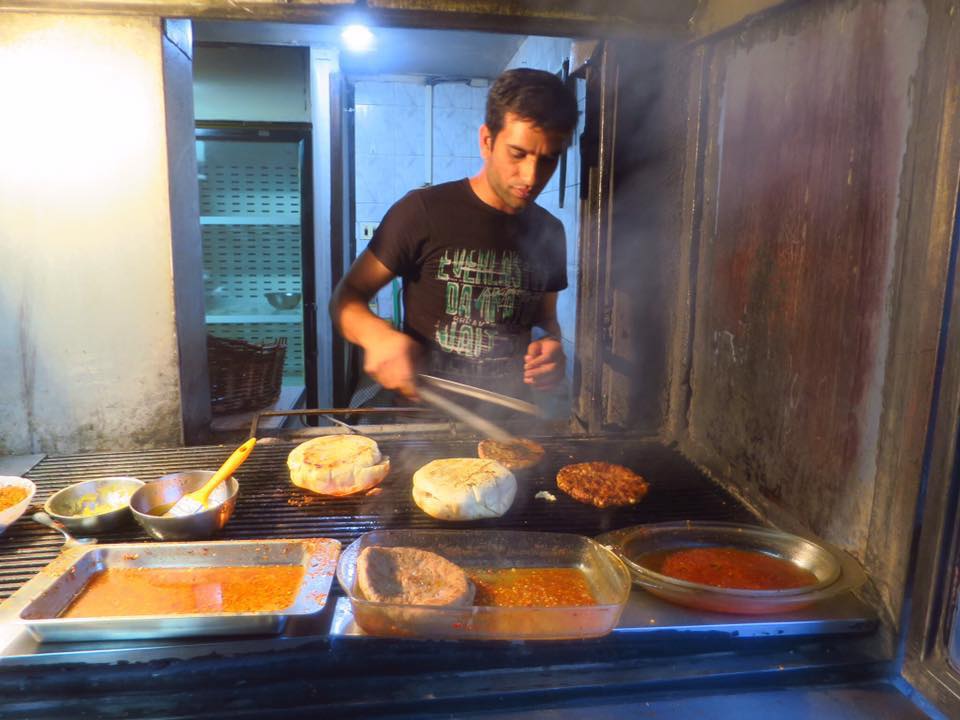
As we approached the park this evening, there was a group of at least 20 people in front of the stall next to Khaleel’s. Khaleel’s stall looked like it was out of business. We were very sad. Visiting him was one of the main reasons we came back to Belgrade. As Kenric and I were peering into the stall, all the refugees started running away. There was a policeman walking towards them with a baton. There was no one left around when the policeman walked past us.
The workers at the stall didn’t seem very nice
We decided to order a spicy burger from this other stall. “Ten minutes.” The two guys who work there didn’t seem like very nice people. One looks South Indian (could be Pakistani, Afghan, Bangladeshi) and one looks Serbian. I asked the South Indian about Khaleel’s stall and was told that it had closed down eight or nine months ago. He doesn’t know a Khaleel. We knew it would be a very slim chance to find a refugee at the same place two years down the road. Yet, we were crushed.
More Police
As we stood around waiting, another policeman yelled at a trio approaching the burger stall, “GO TO CAMP!” The three refugees quickly changed direction. The policeman walked to a different part of the park approaching a few more refugees. I saw the refugees point towards the burger stall. The policeman yelled, “NOW!” The refugees changed direction.
A few minutes later, two males approached the burger stall. The shorter one was wearing a maroon hoodie, and the taller one, a beanie.
“Assalamualaikum!”, Hoodie Guy greeted the two workers at the stall. I didn’t hear the appropriate reply “Waalaikumusalam”. Hoodie Guy showed the workers a 100 Dinar bill (USD $0.95) and both parties talked back-and-forth. Ultimately, Hoodie Guy and Beanie Guy left. I figured they must not have enough money for a burger.
I would have offered but almost every refugee we’ve encountered walks fast, keeps his head down and avoids eye contact. Not far away, Hoodie Guy approached another refugee. That refugee gave him something. Hoodie Guy and Beanie Guy returned to the burger stall and ordered a burger. Hoodie Guy paid and left. That’s when it dawned on us that Hoodie Guy was actually trying to get food for Beanie Guy.
Teared up by a simple gift
Beanie Guy waited for his semi-premade burger. The local worker was tossing some toppings onto it. I heard Beanie Guy said “Tomato”. The worker rather grudgingly tossed some onto the burger. Beanie Guy took his burger and hurried behind the stall. I walked to where he was with a folded 1000 Dinar bill (USD $9.51). He was gorging. I startled him. When he realized I was handing him money, he immediately got up and said “Thank you”. He put the money into his pocket without looking at it. He teared up. It broke my heart.
He’s probably in his early 30s. He volunteered that he’s from Syria and that all his money was gone, and that’s why Hoodie Guy had to get him food. I said, “It’s very cold” because I didn’t know what else to say. Then, I asked how long he’s been in Belgrade. “Ten days.” He thanked me between bites. Every time he said “Thank you”, he would lift his butt a little and give a small bow. “It’s OK. You’re welcome”, I replied every time.
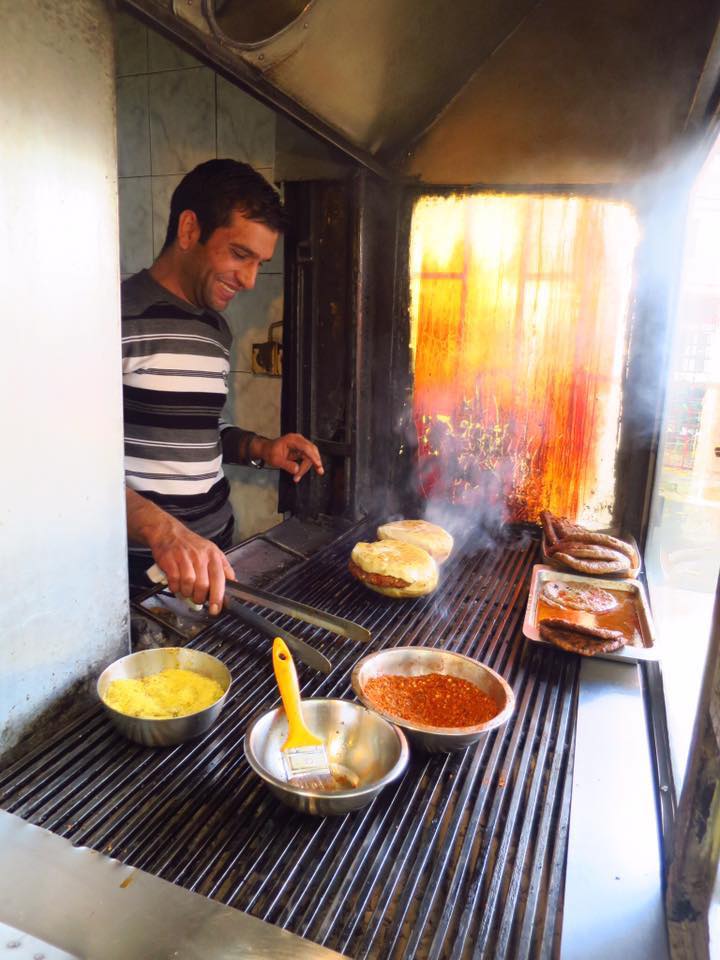
He said he’s been in Romania and Slovenia. At that point, he stopped talking and moved his leg in a kicking manner. To know that a grown man was kicked like an animal is horrible. To be kicked like an animal, I cannot imagine how it must have felt. I didn’t ask how long he was in those two countries. I asked him where the camp was, but he said he sleeps alone outside. When I said we had ordered a burger and asked if he would like another one, he nodded. I repeated many times that it’s spicy and he nodded.
Ezad
I walked back towards Kenric who was keeping an eye from the stall. Our burger was ready and we walked towards the stall. Beanie Guy walked up as well. I asked, “What’s your name?” “Ezad.” We offered him the burger, but he said we should eat first and he would wait for the next one.
Maybe Khaleel had set the bar too high, but Kenric and I weren’t too keen on eating food made by people who don’t treat refugees with simple courtesy. So, we weren’t going to order another burger. We brought the burger to Ezad who had returned to the back of the stall. He still said that Kenric and I should eat first, but I insisted. I asked again if he could eat spicy food because the burger looked spicy even to me. He nodded.
At that point, Hoodie Guy and two more refugees came to sit near him. I folded another 1000 Dinar bill and was about to turn to Hoodie Guy when Ezad stopped me. “No, he use for hashish”, he whispered. I appreciated his looking out and put the money back into my pocket. The money being spent on hashish wasn’t the main reason I didn’t give it to Hoodie Guy. I got the sense that he might be a dealer.
While I fully understand why a refugee might need an escape from the total collapse of his life and uncertain future, I still think the dealers are exploitative. Frankly, I haven’t figured out how I feel about this.
Drawing attention to ourselves
I sympathized with Ezad even more; having to ask Hoodie Guy for handout. I wished I had given him more money, but handing him more at that point might just invite unwanted attention to him, and to us.
We said goodbye and Ezad thanked us many more times. At a distance, I turned around to take a photo of the burger stand. Ezad was at the beverage cooler getting a drink. I warned the poor guy it was spicy. He saw us and yelled “Thank you. Goodnight.”
A sobering day
We don’t know what happened to Khaleel and we won’t know what will happen to Ezad, and to the millions and millions of refugees like them. That made today a sobering day.
